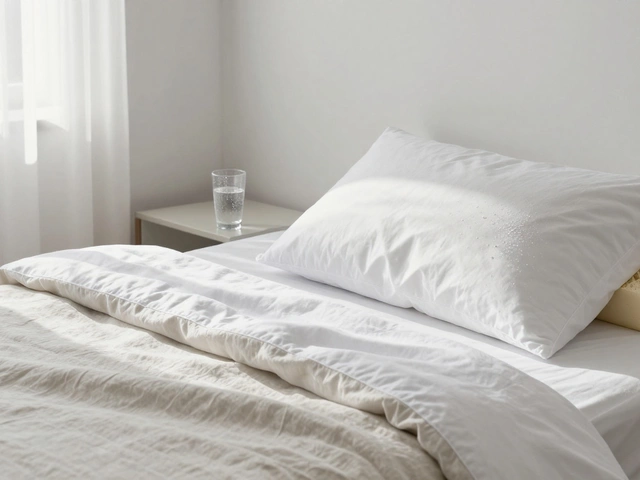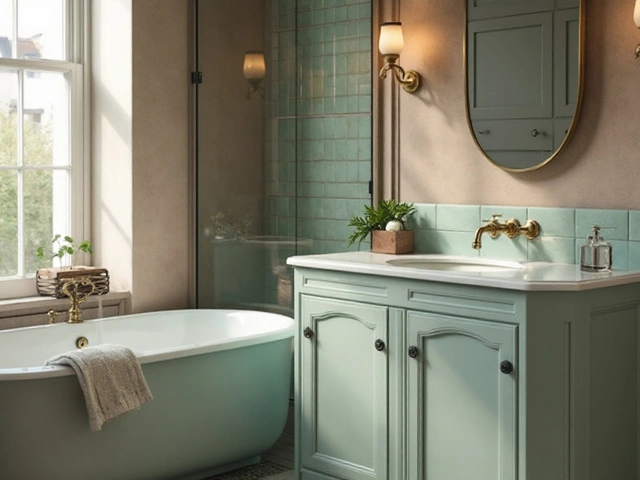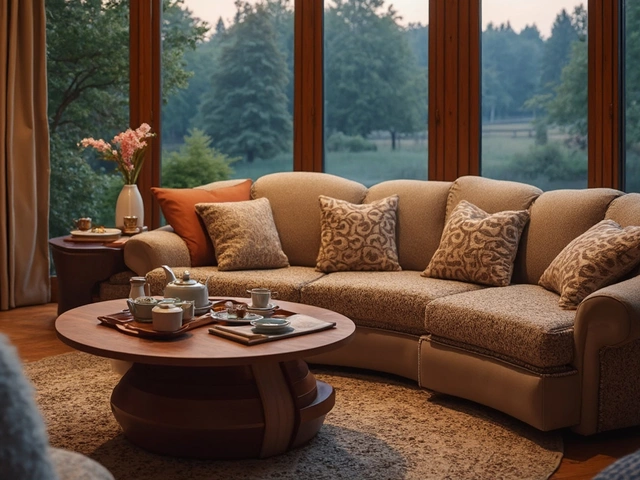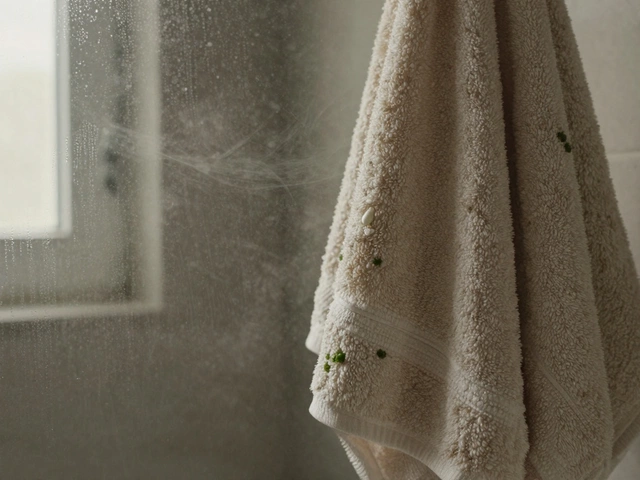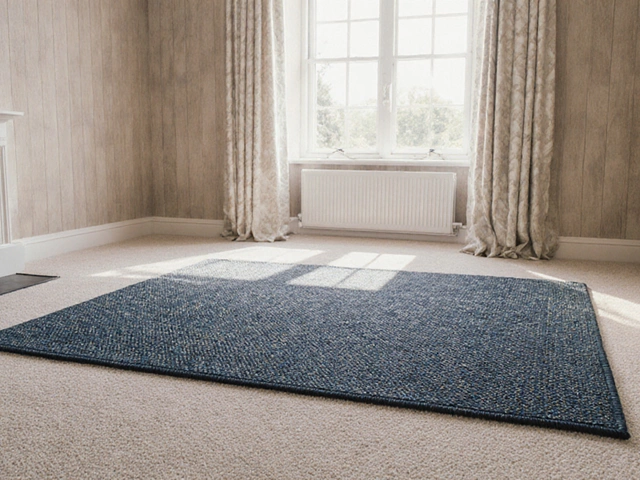Reasons to Rethink Placing Mirrors in Your Bedroom
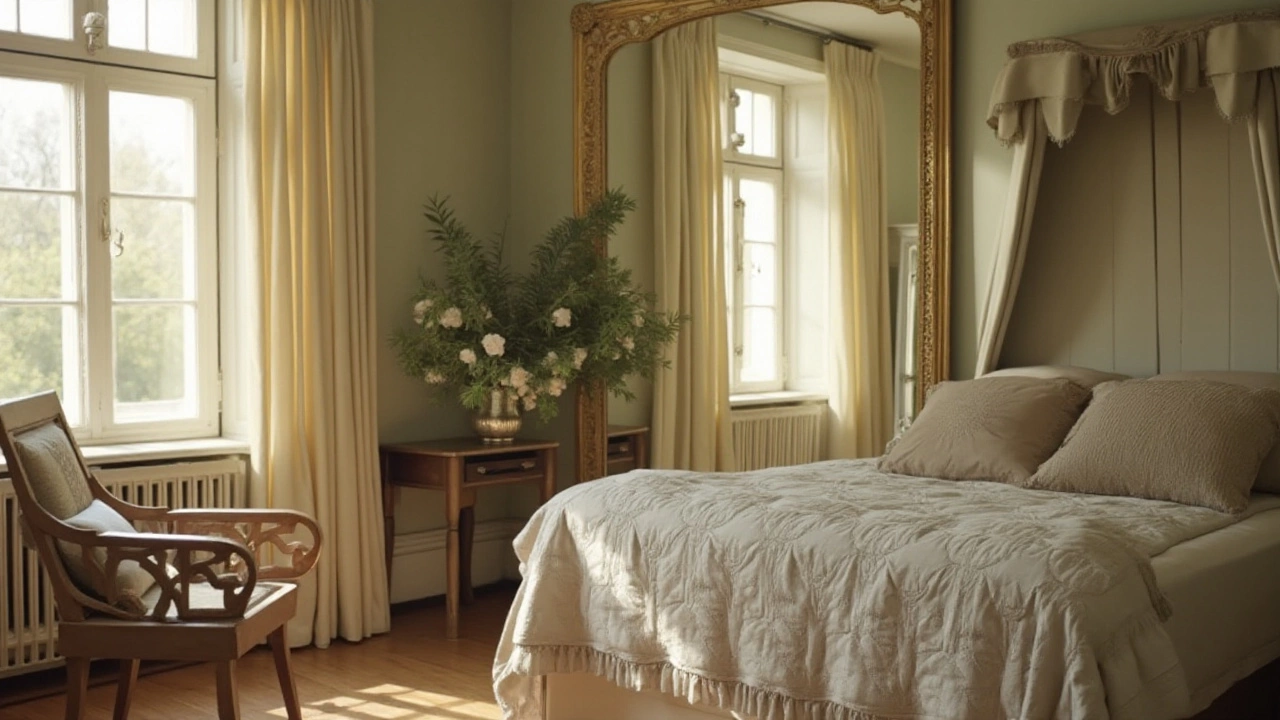
Mirrors have long been admired for their ability to enhance space and light, but their placement can be more crucial than one might initially consider. Especially in bedrooms, mirrors hold a unique influence that extends beyond mere aesthetics.
A bedroom should be a haven for rest and rejuvenation, yet mirrors can sometimes interfere with this tranquil purpose. From disrupting sleep patterns with reflected light to raising privacy issues, mirrors bring both beauty and challenges to bedroom spaces.
This article will delve into reasons to think twice about hanging a mirror where you sleep and offer tips to mitigate any unwanted effects. Whether it's understanding cultural beliefs or exploring functional alternatives, we’ll discover how to maintain a peaceful and balanced bedroom environment.
- The Impact of Reflected Light on Sleep
- Privacy Concerns with Mirrors
- Cultural Beliefs About Mirrors in Bedrooms
- Alternatives to Bedroom Mirrors
- Creating a Harmonious Bedroom Environment
The Impact of Reflected Light on Sleep
It might surprise many to learn just how significant a role light plays in our sleep cycle, and when it comes to mirrors in the bedroom, the effects can be even more pronounced. Reflected light can be a major sleep disruptor. At night, our senses are more attuned to disturbances as our body winds down from the day. Even a soft, yet persistent, gleam from a digital clock across the room can bounce off a mirror and disrupt our rest. Light reflected from a mirror near a window may amplify early morning light, waking someone earlier than intended. This impact extends especially to those who are sensitive sleepers or suffer from insomnia, where even minor disturbances are magnified.
Scientific studies have pointed out the importance of maintaining a dark environment for quality sleep. According to the Sleep Foundation, exposure to artificial light in the evening can alter sleep patterns significantly, pushing us into lighter stages of sleep and reducing the time we spend in rapid eye movement (REM) sleep. REM is crucial, as it helps in memory processing and mood regulation. By introducing a mirror, especially one reflecting a light source, the negative impact is compounded. This phenomenon underscores the importance of considering how bedroom arrangements, including the positioning of mirrors, can create unintended light sources.
Understanding this influence is important for establishing a bedroom environment conducive to sleep. Dr. Rebecca Robbins, a sleep researcher, notes, "Creating a dark, cave-like setting is ideal for sleep because darkness is a signal to our brain that it's time for rest."
One useful practice is to evaluate the bedroom at different times to identify any spots where light reflects or glares unexpectedly, especially from sources like streetlights or device indicators.
Some décor experts suggest using shutters or heavy curtains to minimize outdoor light that enters through windows, and cleverly arrange furniture to avoid mirrors capturing light sources. An effective hack is repositioning mirrors to avoid reflecting beds entirely, adhering to traditional Feng Shui that cautions against mirror placements directly facing one's rest space. Mirrors above or beside the bed may seem aesthetically pleasing but consider displacement to ensure harm is minimized.
To enhance sleep quality and diminish disturbances, such considerations are just as vital as choosing the right mattress or bedding. By approaching bedroom design with a focus on harmony and physiological benefits, one sets the stage for restful nights and energized mornings.
Privacy Concerns with Mirrors
Mirrors in the bedroom might seem inconspicuous, but they can present subtle privacy concerns that many overlook. The reflective nature of mirrors can inadvertently expose spaces and activities intended to be private. This becomes especially pronounced in smaller homes or apartments where the bedroom often doubles as a personal retreat, reading nook, or even a home office.
The strategic placement of mirrors can sometimes result in unintended angles of reflection. For instance, a mirror placed opposite a window could technically allow those outside to catch glimpses of your indoor activities. This situation is more common in densely populated areas like urban centers where buildings are tightly packed. While drapes and blinds offer solutions, forgetting to draw them in the evening could become a recurring privacy mishap.
Bedrooms are also personal spaces where we tend to let our guard down. Mirrors not only reflect physical appearance but can also amplify vulnerability, especially when individuals become overly conscious of their reflections. For some, seeing their reflection from various angles can create discomfort or a sense of unease about self-image, impacting mental well-being over time.
“The presence of mirrors in intimate spaces often forces a confrontation with our self-perception, which can be unsettling for some,” notes Dr. Lisa Feldman Barrett, a prominent psychologist.
The privacy issue extends beyond mere visual exposure. Mirrors can potentially 'double' the people present, affecting the room's perceived occupancy, especially during intimate moments. This is a concept often explored in Feng Shui, where mirrors are believed to bounce energy and may inadvertently invite a third party into a relationship. While this is largely rooted in cultural belief, many find peace of mind by heeding such perspectives, rearranging their spaces for maximum comfort and psychological tranquility.
To maintain privacy and personal comfort, it's crucial to evaluate mirror placement with a discerning eye. Consider areas of the room where privacy is paramount and where reflections might intrude on that sanctity. Shielding mirrors with aesthetic objects or opting for smaller, easily movable mirrors can offer versatile solutions. Assessing how light interacts with these reflective surfaces, you can effectively manage both privacy and lighting to maintain a warm and intimate bedroom atmosphere.
Ultimately, being mindful of privacy can guide you toward creating a bedroom that truly serves your needs. Whether you're adjusting mirror placements to address these concerns or removing them altogether, understanding the nuances helps safeguard your personal sanctuary. Embracing such knowledge ensures that your bedroom remains a secure and serene space, reflective of the tranquility you deserve.
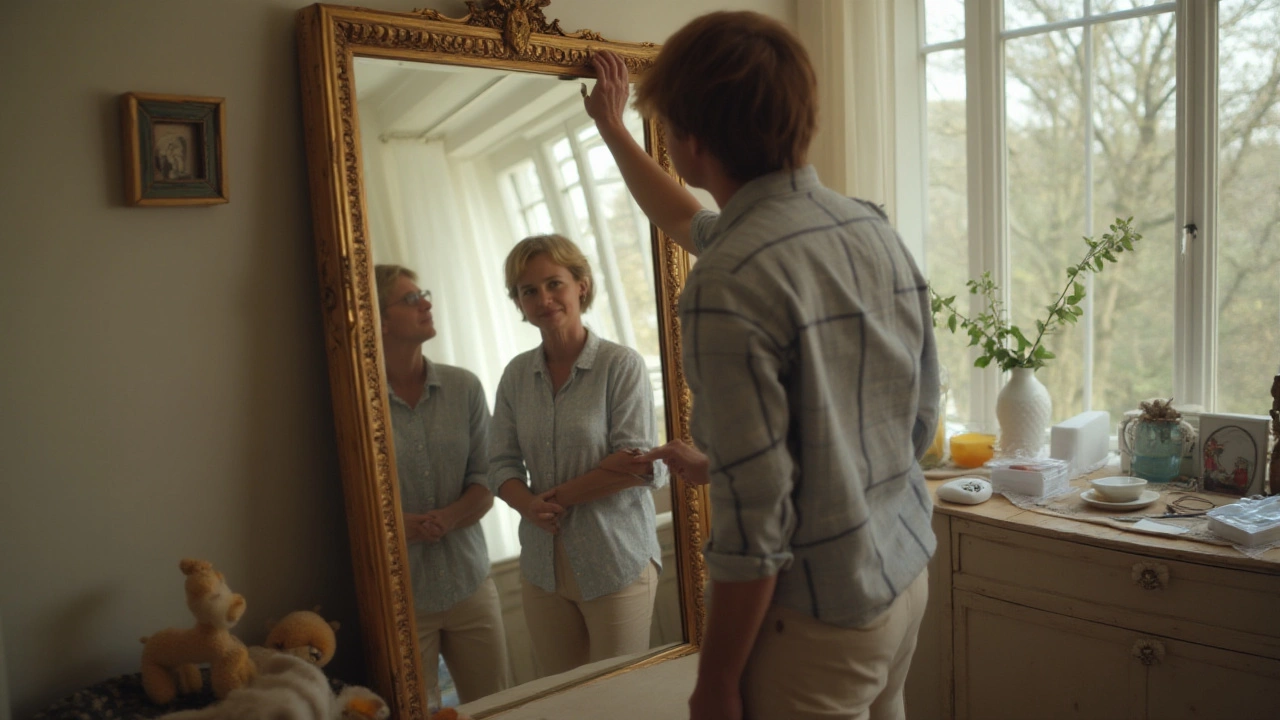
Cultural Beliefs About Mirrors in Bedrooms
Throughout history, many cultures have held profound beliefs about the placement of mirrors, especially in the intimate sanctuary of the bedroom. These beliefs are rooted in traditions and spiritual views that emphasize the interaction between the living space and one's well-being. In several Asian traditions, particularly feng shui, mirrors are thought to bounce energy around the room, which might lead to restlessness or disrupted sleep. The reflective surfaces are said to amplify energy rather than allow it to settle, causing an unsettling environment during the time meant for rest.
For centuries, mirrors in the bedroom have been considered gateways to other realms in some folklore traditions. This has given them a mystical and sometimes eerie reputation. Many believe that mirrors can trap or reflect souls, which is why they were often covered or removed after a person had passed away. The idea is that mirrors might ensnare departing souls or ghosts, creating unwanted spiritual disturbances.
According to feng shui, mirrors should not face the bed directly, as this can invite a third party into the relationship, causing marital discord. The constant reflection of the body during sleep is believed to lead to insomnia, stress, and anxiety. In classical Chinese traditions, it is thought that your spirit leaves your body when you sleep, and encountering your reflection can startle the spirit, leading to a restless night.
Cultural beliefs about mirrors also extend into feng shui concepts regarding health and prosperity. Some feng shui experts suggest covering mirrors at night or positioning them so they do not reflect the bed to promote a calmer and healthier atmosphere. This practice is intended to prevent the mirror from reflecting away positive energy, which could otherwise nourish the residents. Mirrors are powerful tools in feng shui when used correctly, but misplacing them, such as in the bedroom, is believed to cause more harm than good.
Interestingly, certain cultures view mirrors in a positive light. In some African traditions, mirrors are used in rituals to reflect negative energy away from the home. However, the intimate setting of a bedroom alters this perspective significantly, given its role as a place of rest and privacy. The duality of mirrors – as a source of beauty and potential disruption – underscores their enigmatic role in cultural traditions around the world.
These cultural paradigms underscore the importance of how shifting something as simple as a mirror placement can align with deeper human consciousness and practices. While beliefs may differ, the underlying principle of harmony within living spaces remains constant throughout various cultural interpretations.
Alternatives to Bedroom Mirrors
Redefining your bedroom space without a mirror might initially seem daunting, but there are numerous creative and practical alternatives that not only enhance the room's aesthetics but also maintain a sense of tranquility and privacy. Instead of relying on mirrors to reflect light and space, consider using light-colored walls and smart lighting solutions. These elements can naturally brighten the room, giving an illusion of a larger, more open space. Choosing softer, warm tones for wall colors, or even a fresh white, can instantly lift a room’s ambiance. Adopting varied light sources, such as floor lamps, wall sconces, and warm LED strips, can also create depth and highlight architectural features without the need for mirrors.
Artwork provides another rich avenue to explore when decorating a bedroom free of mirrors. Large art pieces can dominate wall space effectively, offering visual interest and serving as a focal point in your decor. Choosing art that resonates with your personality can bring a sense of peace and inspiration every time you enter the room. Mixing different styles such as abstract paintings with vintage illustrations adds layers and depth to the room's character.
"Art is not what you see, but what you make others see." – Edgar Degas
Plants are another wonderful substitute for mirrors, bringing life, color, and even health benefits to your bedroom. Whether it’s a tall fiddle leaf fig for a corner or a hanging pothos near the window, plants can infuse a sense of serenity while also purifying the air. Pair plants with natural materials like wicker or bamboo furniture to enhance the organic, grounding feel.
When it comes to storage, opt for creative built-in solutions or stylish wardrobes that hush visual clutter. Tall bookcases or wardrobes with reflective, yet decorative materials, like frosted glass or polished metal, can subtly mimic the function of mirrors without their direct reflective quality. Many of these furniture options can provide storage while also contributing to the aesthetics of the room.
Textiles also play an important role in softening a room and adding layers of comfort and interest. Curtains made from rich materials, textured throws, and patterned rugs can contribute to a cozy, inviting atmosphere. Layering textiles helps create a feeling of warmth and depth that fills the absence of reflective surfaces. Consider using curtains that have a thermal property to control lighting and room ambiance effectively.
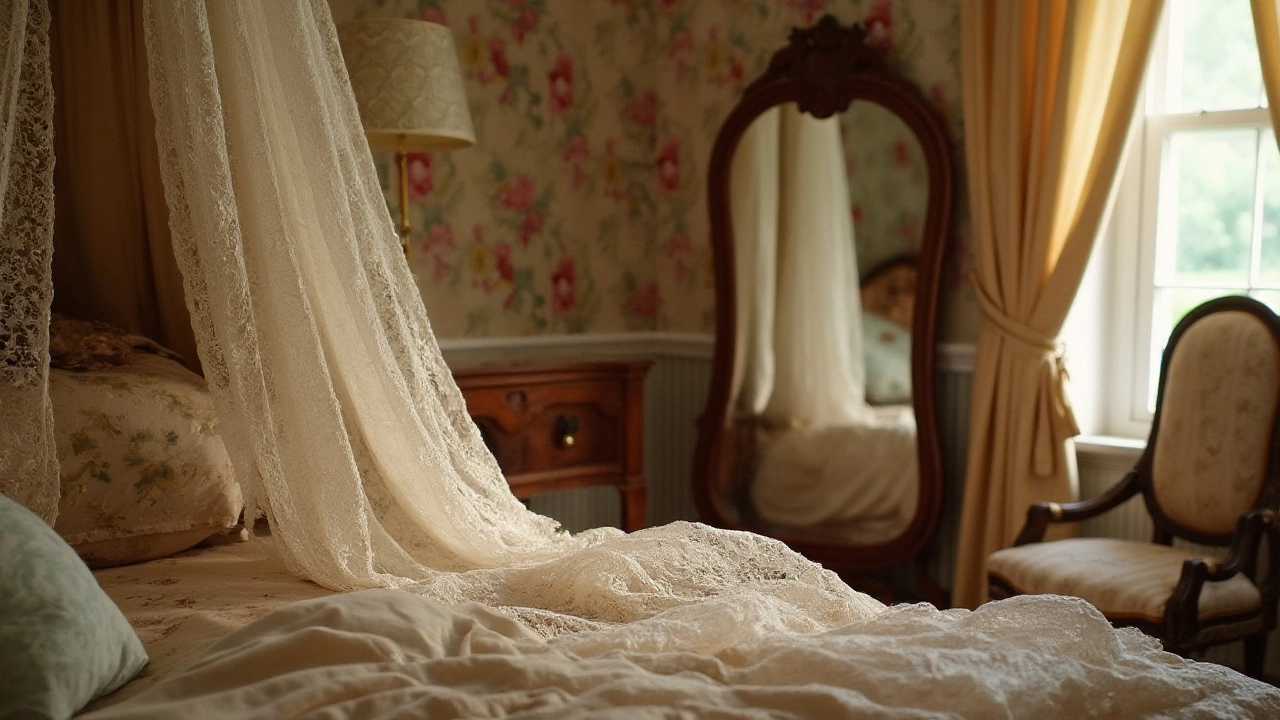
Creating a Harmonious Bedroom Environment
Crafting a bedroom that exudes tranquility and balance involves a nuanced approach, one that respects both the physical arrangement and emotional energy of the space. The journey begins by examining what each item in your bedroom communicates, particularly when it comes to the mirrors we choose to place. These reflective surfaces can, in some cases, transform the very feel of your sanctuary. For instance, mirrors that face the bed can multiply any mess, create unsettling illusions, or even intensify emotions when the room's atmosphere isn’t quite right. Therefore, considering their placement is not merely about design but about cultivating serenity.
An essential step in orchestrating this harmony is understanding how mirrors interact with light and energy. If positioned thoughtlessly, mirrors can capture and redirect light throughout the night, inadvertently disrupting your slumber with flickers and glare. In feng shui, mirrors are sometimes called the “aspirin of feng shui” for their profound effect, reflecting energy away or bringing it into the room depending on their orientation. To maintain soothing vibes, ensure mirrors do not directly face windows. This limits their tendency to bounce external energies around your bedroom, making it a cocoon of comfort.
To truly foster a harmonious environment, consider the personal sentiments tied to specific objects. Incorporating items imbued with positive associations, like photographs from joyful times or artwork that evokes peace, can subtly yet powerfully enhance your room's mood. Removing unnecessary clutter also transforms the bedroom into a spacious haven. As the psychologist Sherrie Bourg Carter notes, clutter can disrupt our thinking and emotional well-being. Keeping surfaces clear and dedicating spaces solely for rest and reflection can positively influence our mental state, promoting calmness and improving focus.
Sometimes, creating harmony involves a touch of creativity. Perhaps you might introduce plants known for their purifying abilities, like snake plants or lavender, which offer both visual appeal and air-cleansing benefits.
“Plants not only add beauty to a room but can also significantly improve air quality,” states horticulturist Nicole Carpenter. Incorporating nature into your sleeping space can add vibrancy, reduce stress, and even boost healing and recovery, aligning perfectly with the restful purpose of a bedroom.
The art of establishing a harmonious bedroom also lies in ensuring proper illumination. Instead of relying solely on harsh overhead lights, consider layering your lighting with softer lamps or fairy lights, allowing for adjustable brightness to match your mood or activities. The ability to modulate the light intensity post-sunset imitates our natural daylight cycles, which can aide in winding down for a deeper, more restful sleep.
Finally, positioning yourself at the psychological center of this harmonious design is key. According to sleep expert Dr. Natalia Poloski, ensuring that your personal rhythm resonates with the room’s setup can dramatically improve your sense of peace. Take time to relax in your bedroom during different times of the day, observing what inspires or irritates you. This active engagement with your living space helps create a truly personal sanctuary. As you design your bedroom, remember it's not just about the arrangement of bedroom mirrors—it's about crafting a space that reflects who you are while promoting a night of restful sleep.

